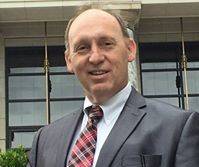To all of my constituents, my neighbors and my friends — You are the reason I am here in Juneau.
I have not forgotten that, and your opinions are important to me. Which is why I need to explain my decision to step away from the state House Republican caucus. I hope you will understand my action and agree with me that it is the best decision for Alaska.
I’ll start off by apologizing for the uncertainty, unrest and not getting this message out sooner. I had hoped it would not take so long for the House to organize itself and start work this session.
The first misconception I have heard from some of you is that I have changed my political beliefs. I want to reassure all of you that I will not be joining the Democrats. Nothing against them as individuals, but that’s not where I belong. Though I stepped away from the fragile Republican caucus, I did not abandon my values, principles or my party.
My intentions are not to divide my caucus but rather to help it succeed. A 21-member majority simply will not be successful. You must increase the numbers, a bipartisan coalition would accomplish this.
The very slim Republican majority that gathered after the November election was doomed to fail. With only 21 very diverse members, every member of the caucus would be needed to get anything done in the 40-member House, especially electing a speaker and passing a budget.
The biggest problem with a 21-member majority is that every single legislator has veto power over every single issue every day. I believe such a minimal majority would not serve our state well. It would be contentious and fall far short of the productive legislative work that we need.
To be perfectly honest, even after the November election, we never had a truly functional Republican majority in the House. Yes, 23 Republicans were elected but only 20 committed to joining the governing caucus. Those other three each had their own reasons not to sign on. But regardless of the reasons, it meant no group had enough committed House members to organize into a majority.
I have spoken with many of my Republican colleagues who agree with me on the necessity of creating a solid, working coalition to move the House forward in the most effective and successful manner possible.
Legislators need to resolve our personal differences to focus on taking care of Alaska. To get the job done, we need to work together to overcome the substantial challenges we face as a state — building a stronger economy, educating our children and college-age students, reducing crime and showing the public that elected officials can do their job without partisanship.
My proposal is simple:
Create a bipartisan coalition to govern the House. My hope is to have upwards of 24 members. A 50/50 split would be ideal. The key leadership positions would be divided evenly between Republicans and Democrats, nominated by coalition members and elected by simple majority of the coalition.
During the 1st session of the 31st Legislature all members would agree to the following terms:
• No changes to the state’s oil and gas tax credits.
• No broad-based tax proposals, such as a state income or sales tax.
• Minimize the introduction of personal legislation in order to avoid distractions and hopefully to lessen the odds of extended or special sessions.
Not that other issues are not important or worthy of discussion, but we need to focus all energy on the people’s top priority. Which is PFD, crime reform and the budget. We are now eight days into Alaska’s 31st legislative session and we are falling behind schedule. The House cannot organize, elect a speaker, appoint committee chairs and set a work agenda until a majority is established. It’s time we get to work.
I want to assure the constituents of District 30 that I did not take my decision lightly. I knew that forcing the issue would disrupt the process and push my colleagues into making hard decisions. But I felt then, and still believe now, that at the end of the day my responsibility is to represent the people of this district to the best of my abilities. Political parties are good, but they are not the sole deciding factor.
This will remain my goal as long as I have the honor of serving as your Republican Representative. I want to reassure you that conversations are ongoing daily, we are slowly moving through this process in hopes of being organized and open for business very soon!
Please feel free to call the office at 907-465-2693 with any questions or concerns.
— Representative Gary Knopp,
District 30
: By Rep. Gary Knopp


